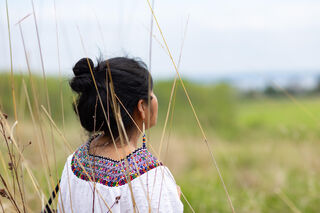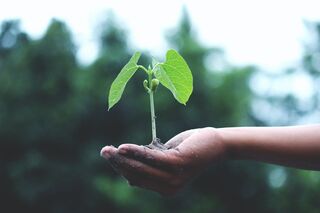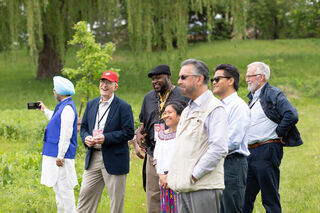Anxiety
5 Things That Can Alleviate Your Eco-Anxiety
Techniques to help you cope with your emotions and build inner resilience.
Posted April 19, 2022 Reviewed by Vanessa Lancaster
Key points
- Those at the frontlines of climate change are uniquely affected because they overwhelmingly bear the costs.
- Growing your awareness toward others can expand compassion and help to overcome feelings of loneliness.
- When we build relationships and support other change-makers, we can collectively make a difference.
By Dekila Chungyalpa
Climate change has moved from the sidelines to center stage in the past few years. The public is awake to the implications of what is at stake; a world of accelerated and intensified natural disasters such as wildfires, droughts, floods, hurricanes, and storms, increased economic upheavals, health crises, and political instability.
Not surprisingly, as we begin to understand exactly how environmental and climate issues affect us, our lives, and those we love, our anxiety and concern have grown in tandem.
In 2021, the APA released the results of a survey that found that two-thirds of American adults (67 percent) said that they were somewhat or extremely anxious about the impact of climate change on the planet and more than half (55 percent) said they were somewhat or extremely anxious about the impact on their mental health.1

People at the frontlines of environmental and climate issues, disaster-impacted populations, Indigenous peoples, younger generations, and environmental scientists and professionals are uniquely affected by environmental and climate issues' psychological and emotional impacts because they overwhelmingly bear the costs.
Many of them combat anxiety, a chronic sense of doom, anger, and feelings of helplessness regarding these issues despite working actively to avert, adapt to, or mitigate the impacts.
As someone who has been working on climate change issues for over 20 years and works on bringing contemplative practices that address eco-anxiety and climate distress to the public, I would like to offer the following grounding techniques for those who may be experiencing some symptoms described above. I hope these techniques help you cope with emotions and, in the long term, build your inner resilience.
Acknowledge Your Emotions
Please acknowledge the emotions that arise in response to the environmental and climate crises as legitimate, as the appropriate response to what is happening around us, and as evidence that your internal threat perception system is working as it should.
Suppressing or denying these emotions will possibly make you feel much worse, while acknowledging them may allow you to find some positive release.

Grow Your Awareness of Others
Grow your awareness toward others, and remember that you are not alone. Consider all the people impacted by these issues, who feel helpless or frustrated or discouraged just like you do, and who are looking for ways to overturn these trends just like you are.
Not only will it help you to mentally extend your empathy and compassion to those who are feeling the same way, but acknowledging that we are all in this together can help to overcome the loneliness you may be experiencing.
Commit to Community
Once your internal sense of community is awakened, commit to finding a community of like-minded people when you complete these practices. Commit to building relationships, supporting and giving energy to the change-makers you know, and working together on practical solutions that can collectively make an enormous difference.

Take Action
Taking action to address these issues can help reduce your anxiety and helplessness. Your actions can be as personal as giving up meat for one day a week or biking instead of driving to work. It can be as communal as participating in an ecosystem clean-up or joining a march to raise awareness.
Whatever action you take will have an empowering and satisfying impact because you will no longer see yourself as part of the problem but as part of the solution.
Connect With Nature
Spending time in nature or taking time to feel a connection with nature is known to have established psychological benefits.2 Find places outdoors or a technique that allows you to connect with the Earth, and if you can invite someone to join you, that’s even better.
Allow yourself to be aware of how nature sustains you, how unconditionally the Earth takes care of you, and how you exist in interdependence with other species. Notice how the oxygen that gives you life comes from the phytoplankton in oceans and the plants that surround you. Rest in the Earth’s compassion for all life on earth, including you.

Dekila Chungyalpa is the founder and Director of the Loka Initiative, a capacity building and outreach platform at the University of Wisconsin – Madison for faith leaders and culture keepers of Indigenous traditions who work on environmental and climate issues. Dekila is originally from the Himalayan state of Sikkim in India and is of Bhutia origin.




